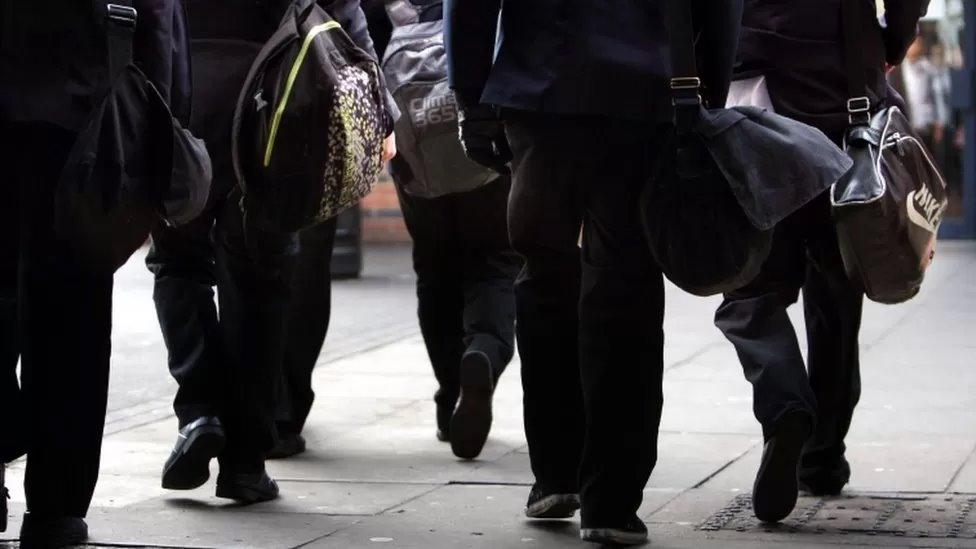The school where teachers never shout at children
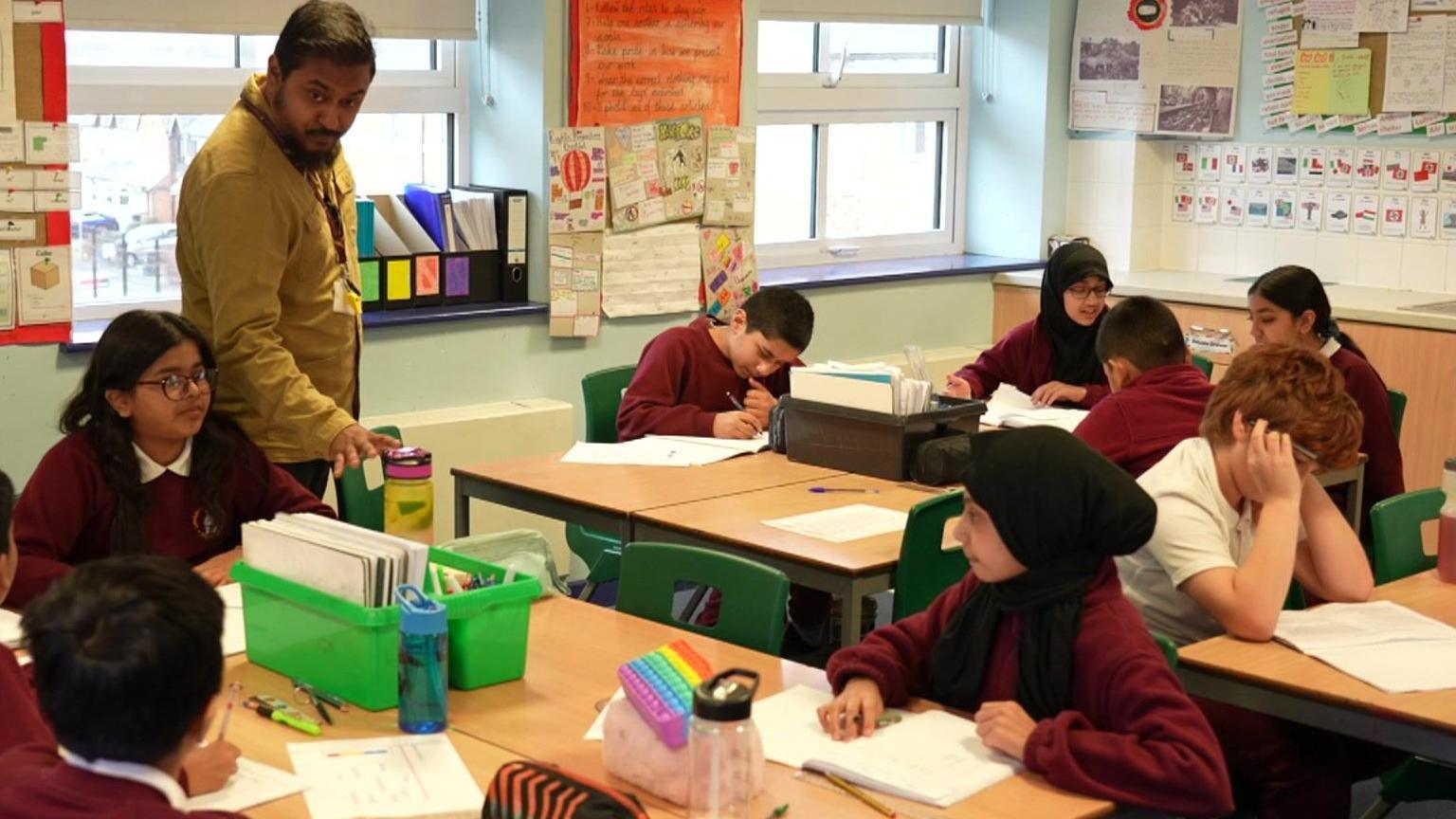
Uphall Primary School in Ilford is part of Unicef's 'rights respecting' scheme
- Published
As schools across the capital are encouraged to sign up to a scheme to reduce absenteeism and suspensions, the BBC visited one primary in east London that is taking a different approach.
At Uphall Primary School in Ilford, teachers are told never to shout at pupils who misbehave.
"The only reason I'd expect someone to shout at a child is if they're running into a road and a car is coming," says head teacher Dr Kulvarn Atwal.
He does not believe in giving detentions, or suspensions, because he is not convinced they lead to better behaviour.
"If someone makes a mistake, if someone does something wrong, then that is a learning opportunity," he says. "Behaviour is learned in the same way as maths or English, and every child learns differently. Some find it very difficult to manage their behaviour."
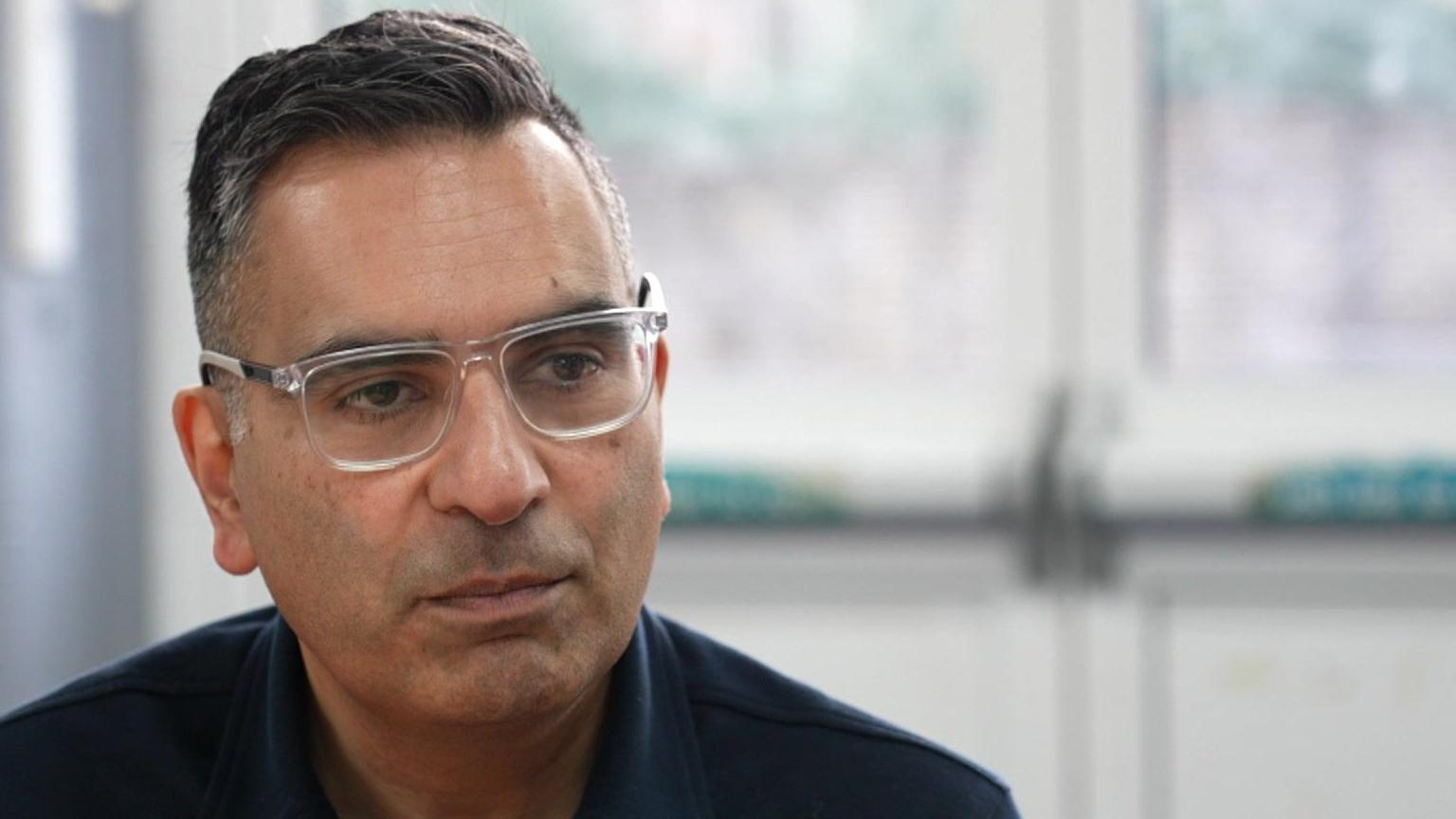
Head teacher Kulvarn Atwal is not convinced that detentions and suspensions help improve a child's behaviour
Instead of a detention, he says, a teacher or staff member will sit with the child and talk through what they did, why they did it, what emotions led to it, and what they could do differently.
He says the child will need to apologise, and to commit to improving their behaviour.
"Pupils know how we are supposed to be treated in the classroom, and we know how to treat others in the classroom", says 11-year-old Fatima.
Her classmate Aaron, also 11, adds: "If they hit someone, they'll probably have to write a letter to apologise to them."
Children not in school 'at risk'
Uphall Primary is recognised as a "rights respecting school", external by the children's charity Unicef, which provides training and lesson plans focused around recognising a child's rights and encouraging them to become more involved in school life and their community.
London’s Violence Reduction Unit (VRU) is encouraging schools across the capital to sign up to the scheme. It is spending £1.4m to offer all state-funded education settings free access over the next four years.
The VRU, which was set up by the mayor to tackle the underlying causes of violence, says rising suspensions and absenteeism are putting more children at risk.
The number of children in London persistently missing more than 50% of school sessions rose from 6,586 in the 2018-19 academic year to 14,689 in 2022-23.
School suspensions are also rising, from 49,404 in the 2018-19 academic year to 56,376 in 2022-23.
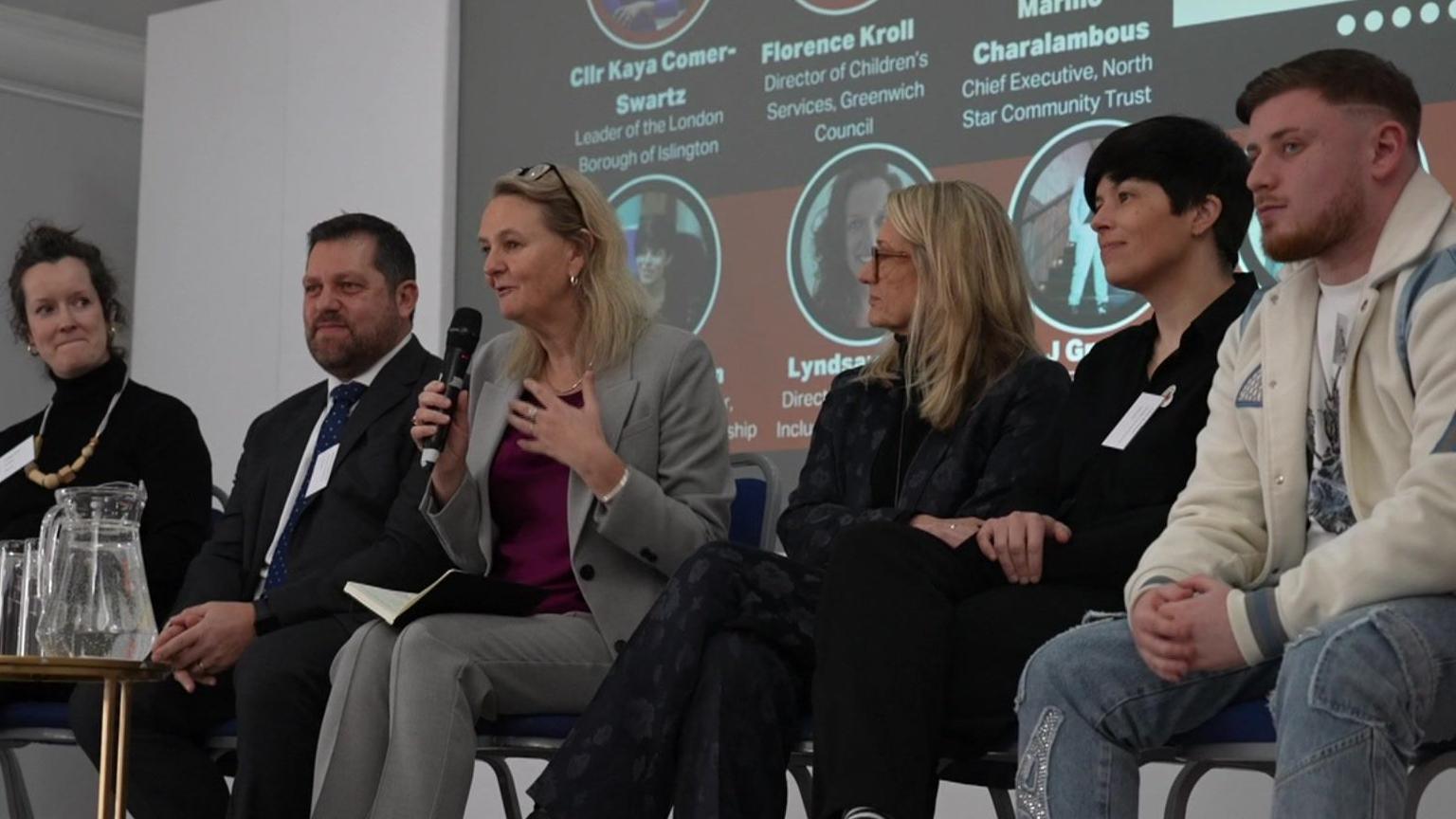
Lib Peck, director of London's VRU, launched the London Inclusion Charter at an event attended by teachers, councils and education specialists
VRU director Lib Peck says: “When you look at young people who aren’t in school, we know they are much less safe, they’re more likely to be caught up in exploitation, unfortunately, they’re more likely to be caught up in violence.
“Kids out of school are twice as likely to be carrying a knife, and when we go into a prison, one in two of those prisoners have been excluded.”
They are encouraging schools and councils to sign up to a new London Inclusion Charter, external, a set of values drawn up alongside young people, parents and education specialists, calling for adjustments to support pupils with different needs, fewer exclusions, and giving children a greater say on issues such as school uniform policies.
So far, 20 of London's 32 boroughs have signed up.
Daniel Kebede, general secretary of the National Education Union, welcomed the charter and Unicef's approach, saying it would help "improve equity and life chances".
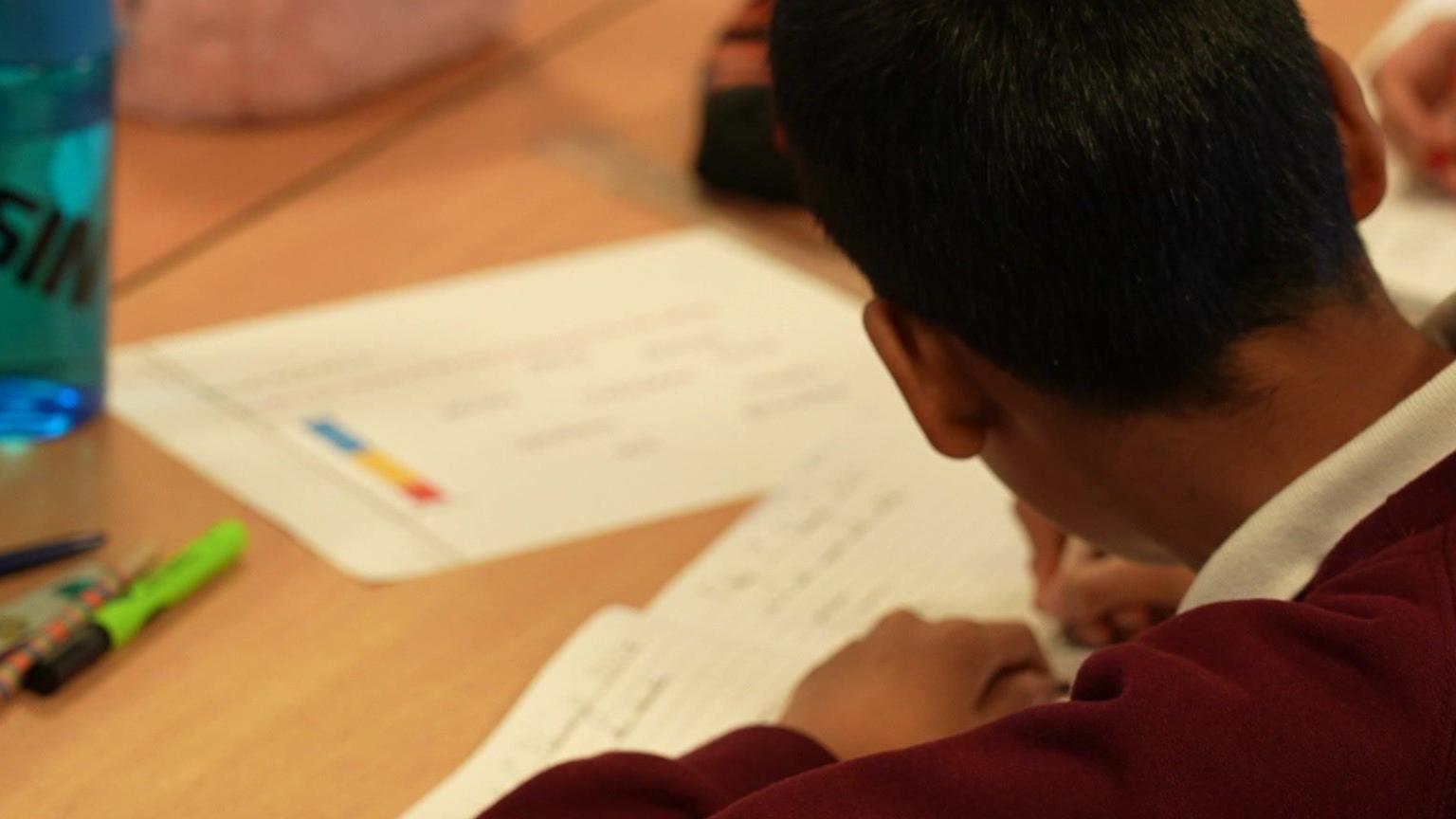
London's VRU wants to reduce the number of children being suspended from school
But do teachers have the resources and support to tackle a child's behaviour if they are persistently disruptive to lessons, or if there is a danger to other children and staff?
"I had a child who brought a knife to school," says Dr Atwal.
"In some schools, that would mean an instant exclusion."
Instead, he says: "We took the time and met with parents, and sat with the child, to try and understand what the reason was for bringing in a knife."
He says he discovered the boy, who was in Year 6 at the time, had recently started walking to school without his parents.
The boy had read an article about someone attacking a woman in the park and had brought the knife “for protection”.
Dr Atwal says: "My job was to say, by carrying that knife, you could lead to harm to yourself.
"But if he had just been excluded, how would that support him to change that behaviour?"
He recognises it is not an approach everyone will agree with, and believes heads should be free to make their own decisions.
The VRU’s Ms Peck agrees, saying they are not taking a zero-tolerance position on exclusions and suspensions.
“What I am saying is, there are lots of points before a young person gets to that situation, where I think we should look at intervening, and at the moment the system doesn’t enable that to happen,” she says.
'Sense of self'
Dr Atwal says he has had to win the trust of parents and staff since taking up his role at Uphall during the pandemic, but their feedback has been very positive.
The school is rated as "requiring improvement" by Ofsted, external, however inspectors found pupils were "polite and respectful", "kept safe" and pupils with special educational needs "benefit from a caring, nurturing environment, where inclusion is promoted and expected".
Dr Atwal says his aim is to prepare children so that by the time they leave primary school they will have a "sense of self", and be able to moderate their behaviour and emotions.
"We won't obliterate knife crime overnight, but we are going to give young people the ability to make decisions that are societally appropriate," he says.
Related topics
- Published30 January 2024
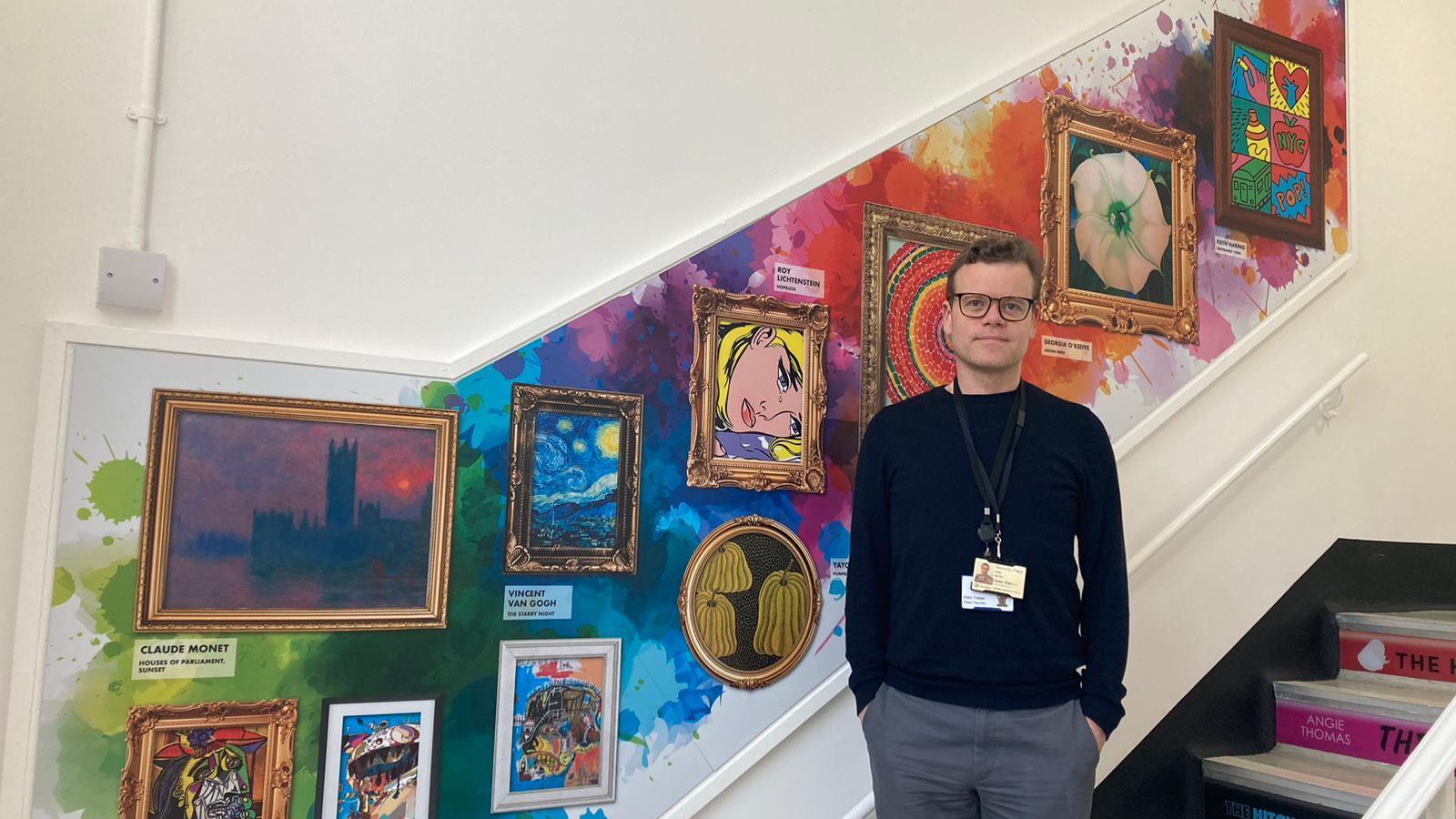
- Published10 January 2024
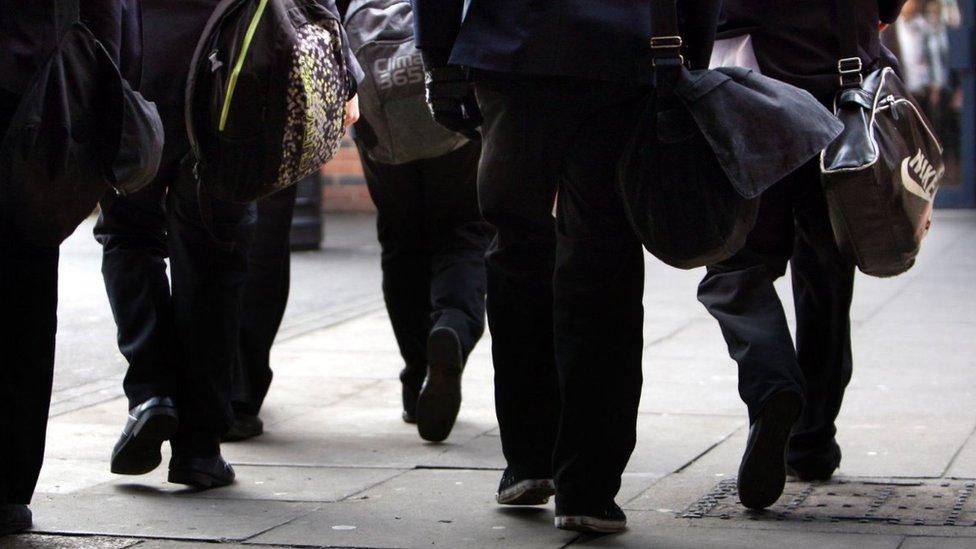
- Published6 September 2022
